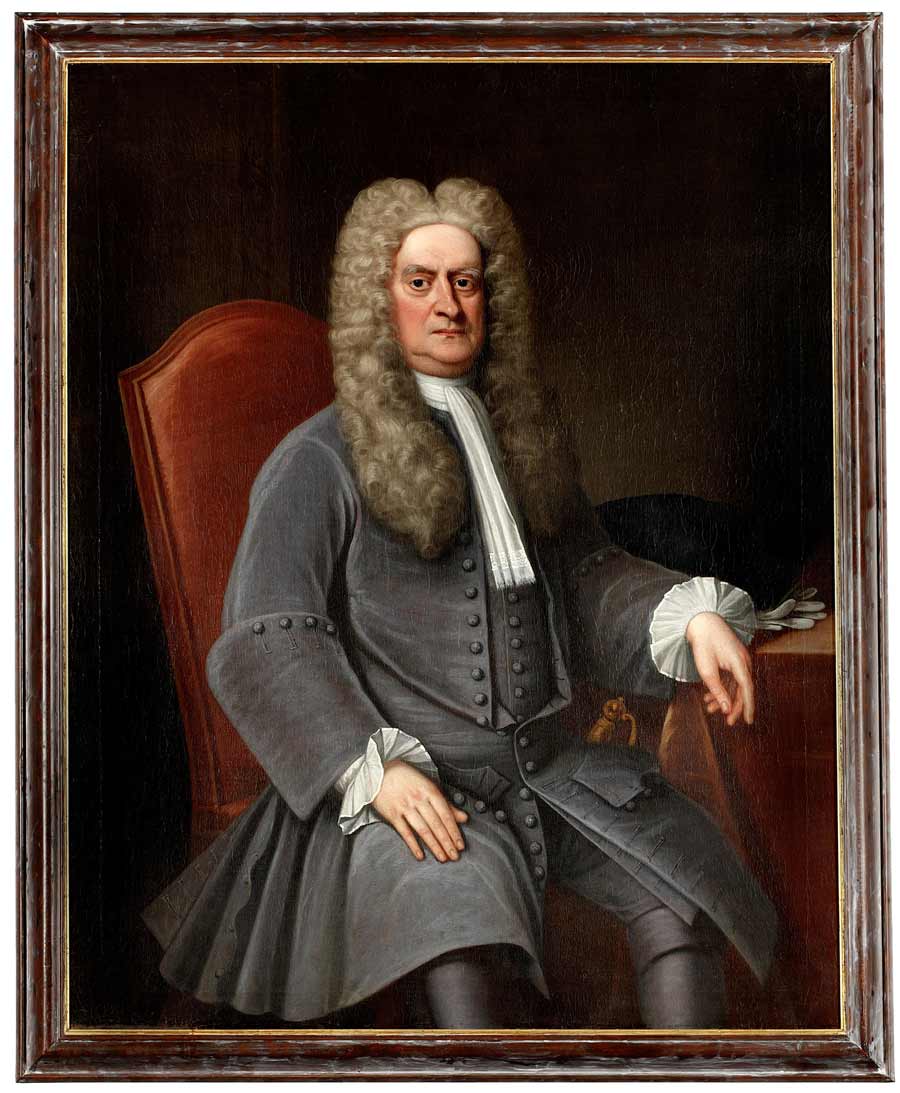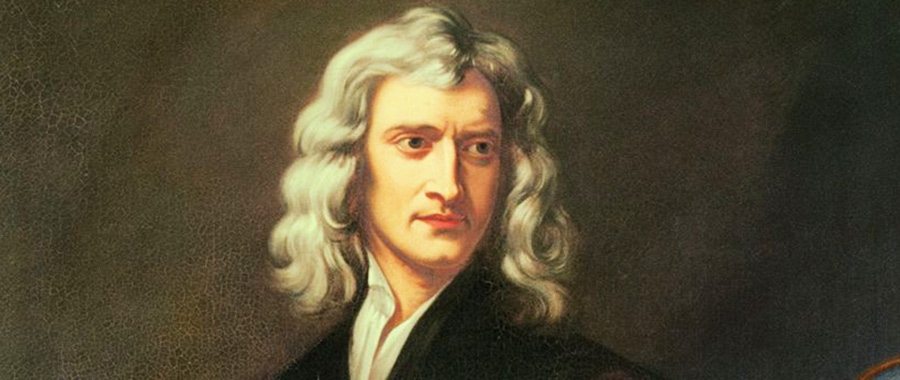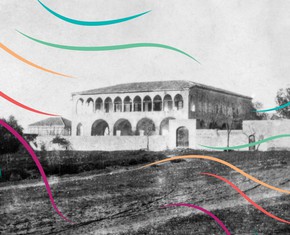The views expressed in our content reflect individual perspectives and do not represent the authoritative views of the Baha'i Faith.
 The harmony of science and religion is a basic Baha’i principle—so suppose that a renowned scientist were to weigh in on prophecy. What would that scientist say?
The harmony of science and religion is a basic Baha’i principle—so suppose that a renowned scientist were to weigh in on prophecy. What would that scientist say?
Wouldn’t we expect a scientist’s interpretations of prophecy to be rational and reasonable? Let’s take one of history’s most famous scientists, Sir Isaac Newton, as a test case.
Did you know, that in addition to being a mathematician and physicist, Newton was also a theologian? In 1733 he wrote a book called Observations upon the Prophecies of Daniel and the Apocalypse of St. John, and in one of his related writings on the subject, Newton wrote:
If then the Prophesies which concerned the Apostolique age were given for the conversion of the men of that age to the truth & for the establishment of their faith, & if it was their duty to search diligently into those Prophesies: why should we not think that the Prophesies which concern the latter times into which we are fallen were in like manner intended for our use that in the midst of Apostacies we might be able to discern the truth & be established in the faith thereof, & consequently that it is also our duty to search with all diligence into these Prophesies.
… Thou seest therefore that this is no idle speculation, no matters of indifferency but a duty of the greatest moment. …
Consider how our Saviour taught the Jews in Parables that in hearing they might hear & not understand & in seeing they might see & not perceive. And as these Parables were spoken to try the Jews so the mysticall scriptures were written to try us. Therefore beware that thou be not found wanting in this tryall. – Sir Isaac Newton, Untitled Treatise on Revelation (section 1.1).
Similarly, Baha’u’llah wrote:
… in every age, the reading of the scriptures and holy books is for no other purpose except to enable the reader to apprehend their meaning and unravel their innermost mysteries. Otherwise reading, without understanding, is of no abiding profit unto man. – Baha’u’llah, The Book of Certitude, p. 172.
Know verily that the purpose underlying all these symbolic terms and abstruse allusions, which emanate from the Revealers of God’s holy Cause, hath been to test and prove the peoples of the world; that thereby the earth of the pure and illuminated hearts may be known from the perishable and barren soil. From time immemorial such hath been the way of God amidst His creatures, and to this testify the records of the sacred books. – Baha’u’llah, The Book of Certitude, p. 49.
Do Newton and Baha’u’llah agree on the general purpose of prophecy, and on our duty to try and understand prophecy? See for yourself. Simply transpose their statements to see if their meanings are roughly equivalent.
Here, if Newton were to say, in the words of Baha’u’llah, that “the purpose underlying all these symbolic terms and abstruse allusions … hath been to test and prove the peoples of the world,” would this make Newtonian sense? Similarly, if Baha’u’llah were to say, in Newton’s words, that “the mysticall scriptures were written to try us,” and so “beware that thou be not found wanting in this tryall [trial],” would this make sense within Baha’u’llah’s universe of discourse?
Yes, indeed! Having met the test of functional equivalence, Sir Isaac Newton’s and Baha’u’llah’s respective statements on the general purpose of prophecy—and on our duty to try to understand them—passes the test of transposition.
Having met the transposition test of comparative functional equivalence, let’s see what else Sir Isaac Newton and Baha’u’llah had to say regarding interpretative strategies for “decoding” prophecy. Are there any general rules for the rational or the mystical interpretation of prophecies? Again, consider what Newton had to say:
He that would understand a book written in a strange language, must first learn the language & if he would understand it well he must learn the language perfectly. … John did not write in one language, Daniel in another, Isaiah in a third & the rest in others peculiar to themselves; but they all wrote in one & the same mystical language . …
I received also much light in this search by the analogy between the world natural & the world politique. ffor the mystical language was founded in this analogy & will be best understood by considering its original. – Sir Isaac Newton, The First Book Concerning the Language of the Prophets, Chapter 1, A Synopsis of the Prophetic figures.
What Newton is saying here is that we can best understand the “mystical language” of prophecy as an “analogy” (or symbolic correspondence) between “the world natural & the world politique.” (Today, we would say, “the body politic” to refer to humanity at large.) In other words, prophecy uses the world of nature to mystically describe the human world. Put differently, prophecy uses nature to talk about human nature—that is to say, prophecy represents the spiritual by means of the physical.
Now consider the following statements from Baha’u’llah:
It is evident unto thee that the Birds of Heaven and Doves of Eternity speak a twofold language. One language, the outward language, is devoid of allusions, is unconcealed and unveiled; that it may be a guiding lamp and a beaconing light whereby wayfarers may attain the heights of holiness, and seekers may advance into the realm of eternal reunion. … The other language is veiled and concealed, so that whatever lieth hidden in the heart of the malevolent may be made manifest and their innermost being be disclosed. Thus hath Ṣadiq, son of Muhammad, spoken: “God verily will test them and sift them.” … In such utterances, the literal meaning, as generally understood by the people, is not what hath been intended. – Baha’u’llah, The Book of Certitude, pp. 254–255.
Let’s again apply the test of transposing these statements by Sir Isaac Newton and Baha’u’llah to see if they make sense in each other’s universe of discourse. If Newton were to declare that scriptures, in general, “speak a twofold language,” as Baha’u’llah states, then that statement would make sense, consistent with Newton’s own interpretative approach. If Baha’u’llah were to declare that prophecies are written in a “mystical language,” then Newton’s words would ring true in Baha’u’llah’s realm of discourse:
Wert thou to cleanse the mirror of thy heart from the dust of malice, thou wouldst apprehend the meaning of the symbolic terms revealed by the all-embracing Word of God made manifest in every Dispensation, and wouldst discover the mysteries of divine knowledge. – Ibid., p. 68.
This is not to say that Baha’u’llah and Sir Isaac Newton were in perfect agreement. But if Newton, one of the greatest scientific minds of all time, approached prophecies in much the same way as Baha’u’llah, one of the greatest religious minds of all time, then this stands as one outstanding instance of the principle of the harmony of science and religion, and of the compatibility of reason and faith. On this principle, Sir Isaac Newton and Baha’u’llah would, no doubt, agree.
















Comments
Sign in or create an account
Continue with Googleor